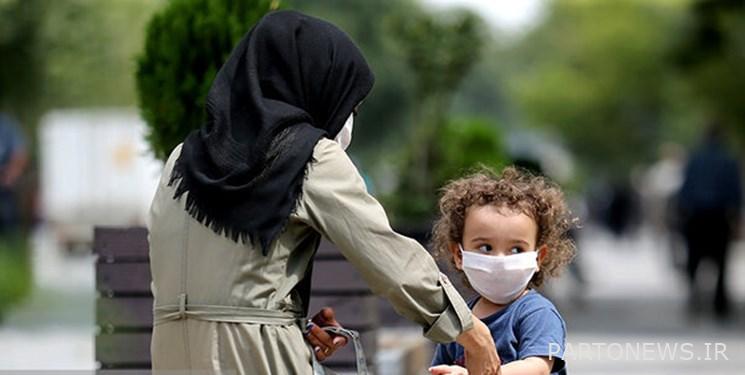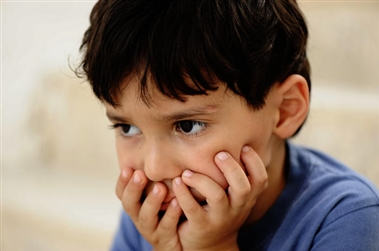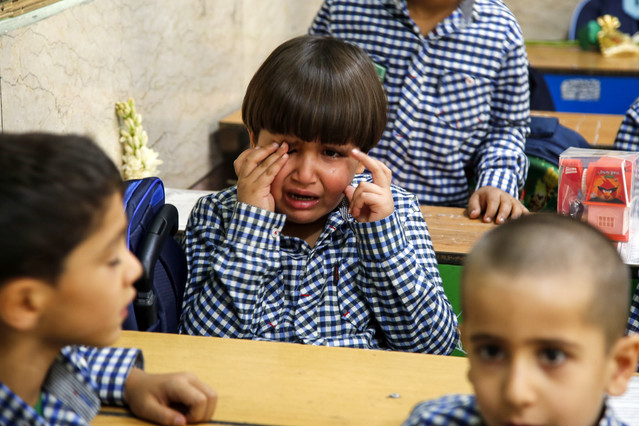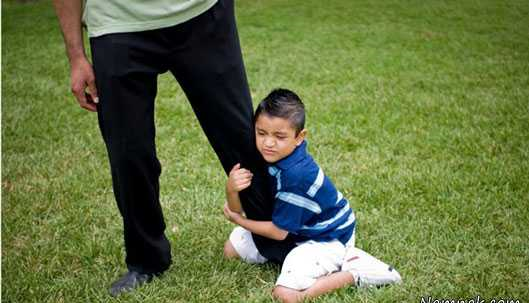What is the most common phenomenon of separation anxiety in children? / Strategies to eliminate the confusion of children

Family group: Most infants and young children in the early stages of their lives do not cope well with the experience of separation from their parents and become disturbed. This is a completely natural anxiety in the emotional development of children, which is called separation anxiety. Therefore, it is natural for children to feel anxious and anxious when separated from their parents, along with crying and clinging.
Separation anxiety in children begins before the age of one and should go away naturally by the age of four. However, some of it is normal to stay away from parents until the age of four.
This anxiety becomes disturbed when older children, such as preschoolers and school children, show great negative reactions away from their parents, especially their mothers, so that their learning process and daily activities are disrupted.
Therefore, it is perfectly normal when separation anxiety does not disrupt the normal life process of the child and his parents, but if this anxiety interferes with the normal life of the child and his parents, he needs measures to solve the problem.
Many of these children become restless even when they are separated from their parents, are afraid to go to kindergarten, or even avoid sleeping alone in their room. In social situations, they cling to their parents and can not bear to be away from them for a moment. These children are constantly worried about their parents ‘health and are constantly checking their parents’ situation.
Do you think that your child’s crying and upsetting reaction when he is away from you is a natural reaction or should you worry about it? Do all children have this behavior or just your child?
In answer to this question, it should be said that most parents experience their child’s anxious reaction to dealing with distance at least once, but the decisive issue in this type of anxiety is the age of the child. Separation anxiety is a normal stage of a child’s emotional development that, as mentioned, starts at six or seven months of age, peaks at one year of age, and gradually decreases, but is also normal until about eighteen months of age.
If the anxiety does not develop and persists in later life, it may return to avoid school at the age of six, or physical symptoms such as heartburn, digestive problems, headaches and nausea due to anxiety and interrupted sleep, and nightmares. To create for kids.
* What methods can prevent the persistence and stabilization of separation anxiety in children?
Start with short separation times
For example, when your child is playing with his grandmother, you should stay in your room and not be in his sight, and over time, increase the separation in the home space.
Try to arrange for your child to play an engaging game at the time to make the process easier.

Have a consistent goodbye routine
Never leave a child without saying goodbye. When saying goodbye, be the same height as the child, kiss him and pay attention to him. But do not do this for too long. Also, be sure to remind the child when you are going to return and do not gossip about your return.
Use concrete examples for your return time. For example, “When it got dark and the sun was not in the sky, I went again.”
The first separation from children is difficult
The first separation from children is also difficult and anxious for parents. The important thing is to control your anxiety when dealing with your child and when saying goodbye. So that this concern is not transmitted to your child.
When the child realizes that you are afraid of this temporary separation, he believes that something very bad is going to happen and you may not even return to him!
Keep in mind that experiencing anxiety in children three years of age or older requires clinical intervention or consultation with a pediatrician and psychologist, and you should take this seriously. Because it does not resolve spontaneously over time and can be harmful to the child.

Do not forget your appointment with the child
For example, if you promised your child that you would come home at night or at a specific time, be sure to keep your promise so that the child is sure that you will return.
– Do not change your child’s nurse as much as possible
This is also for those who are employed and are taking care of their child, moving the nurse instead of the mother is an anxiety for the child. Now imagine that you constantly want to change the nurse under different pretexts, until you have to Do not do this because the child will get used to the nurse and again this change of attachment will be harmful to him.
– Do not leave a scary TV show for the child
Do not let children watch scary TV shows so that you have to put them to sleep hard and next to you.
Do not give in to the wishes of the children
If your child becomes restless and insistent when you go to work or out, you should not give up, but calm him down and promise to return. However, try not to use phrases such as: “When you grow up, do not do this” or “ugly, others laugh” and … because it doubles his anxiety.

-Be creative
Try to creatively reduce the separation anxiety of the child, such as telling a story about a parent who had trouble getting home and taking time to come to the children, or making plans for those who have working parents, and Their children stay at home with their grandparents or nurse. This in itself is effective in reducing children’s anxiety.
Sometimes this anxiety is for being alone when sleeping in the baby’s room. Instead of giving up and bringing the baby to your room, it is better to calm him down, provide a safe environment in his room and be by his side for hours before bedtime and entertain him. Read a book to him, hug him and whisper a song or leave a story tape for him to fall asleep.
If the child wakes up again during the night, go with him again and calm down and talk to him without excitement until he falls asleep twice.
Most of the problems for children with separation anxiety will be eliminated with these tricks, but if you see that it still did not work, it is better to talk to a child specialist and counselor in this field.
End of message /

